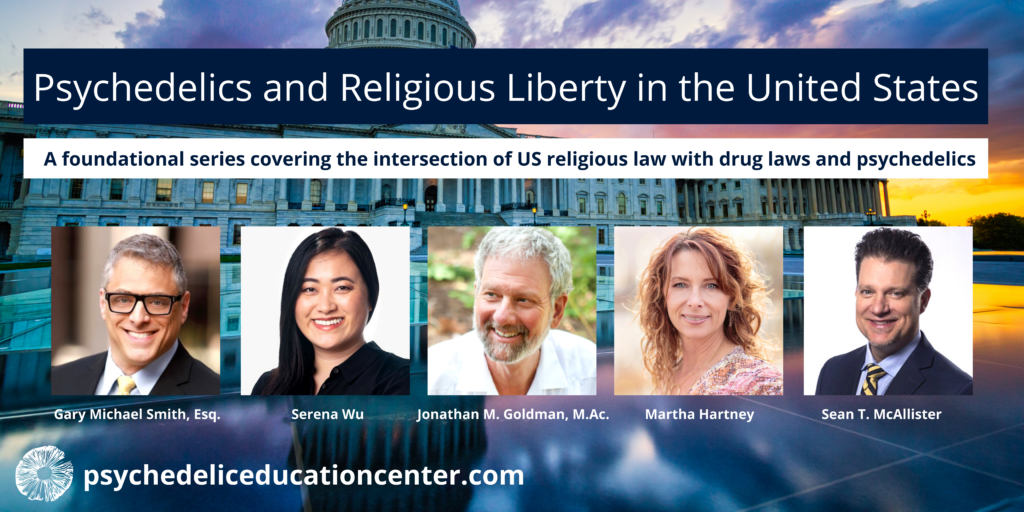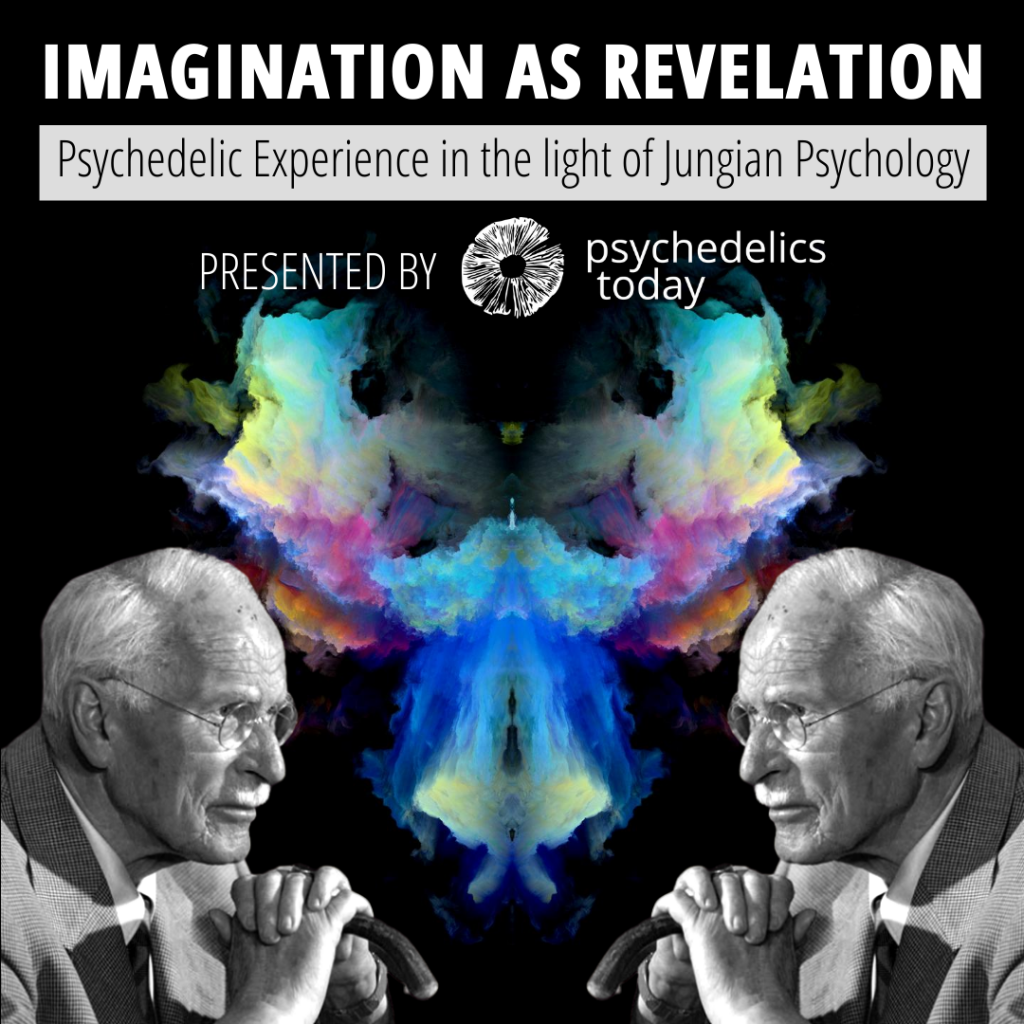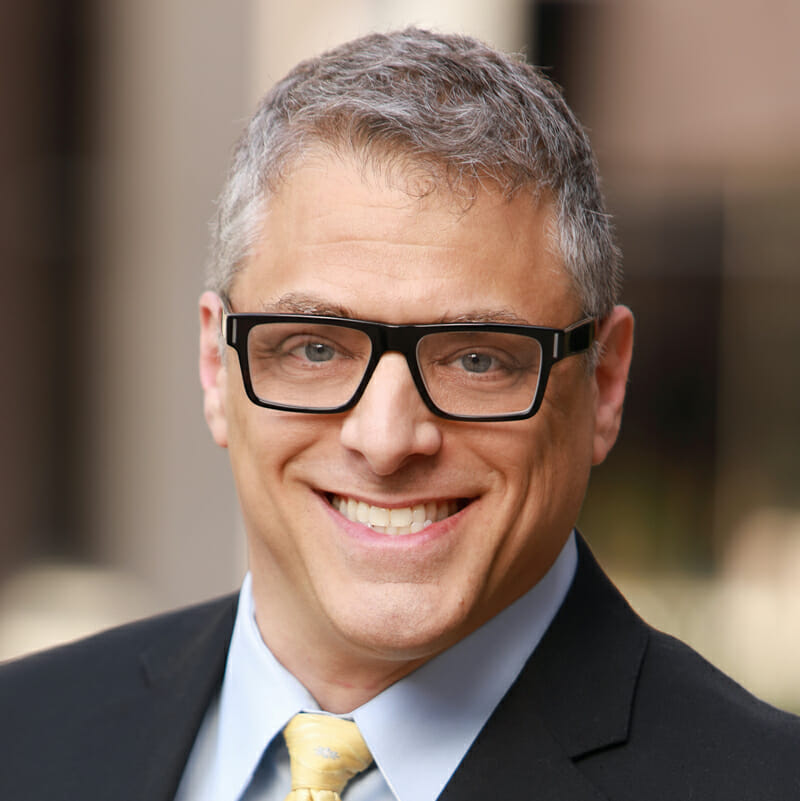By Gary Michael Smith Esq.
Our regular legal contributor explains why the DEA denied the ayahuasca church Soul Quest’s religious freedom exemption application, and how the DEA may be overstepping its role.
To explain what happened between the DEA and Soul Quest, we first need to step back and start from the very beginning. Our story begins with the Drug Enforcement Administration (DEA), a sub-agency of the US Department of Justice, itself an agency of the Executive Branch. The DEA serves as legal gatekeeper of scheduled substances under the Federal Controlled Substances Act, including ayahuasca which contains dimethyltryptamine (DMT), a Schedule 1 substance. Although Schedule 1 substances are generally forbidden, their manufacture and use are permitted for licensed scientific research and as sacrament in sincere religious practice. In fact, there are United States Supreme Court cases that have recognized the First Amendment protected use of psychedelic substances, such as ayahuasca and peyote, in religious practices.
Against this backdrop, the DEA asserts jurisdiction over access and importation of Schedule 1 substances. For religious users, the DEA requires all religiously inclined importers, manufacturers, and users of Schedule 1 substances to first seek DEA exemption (meaning: acknowledgment and permission) before being allowed to import or to access such drugs. The DEA even published an exemption application and requires all parties seeking exemption to provide a raft of data, substantial disclosures, interviews, among other requirements, signed and sworn under oath, attesting to the possession and use of Schedule 1 substances.

The Soul Quest Exemption Application
In an effort to comply with the DEA Soul Quest Church of Mother Earth, Inc. submitted a request for religious exemption to use ayahuasca as a sacrament in 2017. It wanted to assure its congregants and officiants would be protected from further and future investigation and interdiction by the DEA, which posed a continuing threat of intervention and prevention of Soul Quest’s ayahuasca importation.
Under attorney letterhead, Soul Quest’s request sought exemption from application of the Controlled Substances Act in its totality—in other words, Soul Quest was seeking the ability to import, possess, manufacture and administer ayahuasca, all on premise of religious freedom:
“…request for a religious-based exemption by Soul Quest Church of Mother Earth, Inc., d/b/a, Soul Quest Ayahuasca Church of Mother Earth Retreat & Wellness Center (“Soul Quest”) to the provisions of the Controlled Substances Act, 21 U.S.C. § 801, et seq., specifically as it pertains to the ritual use by Soul Quest of ayahuasca for its sacramental activities. Soul Quest asserts its eligibility for such an exemption, pursuant to the United States Supreme Court’s decision in 0 Centro Espirita Beneficente Uniao Do Vegetal v. Gonzalez, 546 U.S. 418 (2006) (“Gonzalez”), and the provisions of the Religious Freedom Restoration Act of 1993, 42 U.S.C. §§ 2000bb, et seq., (“RFRA”).”
In support of its First Amendment and Religious Freedom Restoration Act (RFRA) rights, Soul Quest provided a variety of organization records and information, including bylaws, articles of faith, dietary provisions, mission statement, safety and security protocols, among other requirements. Several church members also sat for extensive interviews with DEA agents.
The DEA’s Denial of Soul Quest
Disappointingly, albeit not surprisingly, the DEA took the better part of four years to come to a decision: application denied.
“Congress shall make no law respecting an establishment of religion, or prohibiting the free exercise thereof…”
It is important to make a clear distinction here that the First Amendment does not grant religious freedom. Rather, it acknowledges its preexistence. The US Constitution presupposes religious freedom existed before nationhood and that the innate right would be forever protected from government intrusion through the guarantee provided for in the First Amendment. In this sense, the First Amendment is a brake on governmental regulatory power. But this does not mean the government cannot regulate. It can. But, when those regulations intersect religious belief or practice, the borders of Constitutional right can sometimes be ambiguous and require a court ruling. That is where the Federal Religious Freedom Restoration Act comes into play. It assures that the burden is always on the government to prove that its religion-impacting regulation serves a compelling governmental interest and is being enforced by the least restrictive means. To this end, the DEA’s denial letter actually does a fine job of summarizing the RFRA standard. But for reasons explained a little further below, the DEA is misinterpreting its position in the RFRA analysis flow:
“According to RFRA, the “Government shall not substantially burden a person’s exercise of religion” unless the Government can demonstrate “that application of the burden to the person (1) is in furtherance of a compelling governmental interest and (2) is the least restrictive means of furthering that compelling governmental interest.” 42 U.S.C. § 2000bb-1; AG Memorandum at 3. To establish a prima facie case for an exemption from the CSA under RFRA, a claimant must demonstrate that application of the CSA’s prohibitions with respect to a specific controlled substance would (1) substantially burden, (2) religious exercise (as opposed to a philosophy or way of life), (3) based on a belief that is sincerely held by the claimant. 0 Centro, 546 U.S. at 428. Once the claimant has established these threshold requirements, the burden shifts to the government to demonstrate that the challenged prohibition furthers a compelling governmental interest by the least restrictive means. This “compelling interest test” must be satisfied through application of the CSA to the particular claimant who alleges that a sincere exercise of religion is being substantially burdened. Id. at 430-31.”

The DEA Installed its RFRA Filter Backwards
Soul Quest is in litigation with the DEA over the exemption denial and is challenging the DEA’s determinations, seeking to enjoin the government agency’s continuing interdictions of its religious practices. Whatever facts the DEA disbelieved or questioned will ultimately be put to a judge (if the case survives to an evidentiary hearing).
Not only does Soul Quest get to challenge the DEA’s application of the facts, but Soul Quest also gets to challenge how the DEA applies the law. In this regard, any psychedelic religious group would be right in thinking to attack the process. That is, just because the DEA says it gets to decide what a religion is, does not necessarily mean the DEA actually has that authority. Likewise, just because the DEA says its policy of wholesale refusal to grant importation exemption is the “least restrictive means” does not mean it is.
In other words, a psychedelic religion seeking to challenge the DEA’s assumptions should not simply let the DEA dictate or frame the issues. Why? Because the DEA has it wrong. Let’s walk through the analysis.
Imagine you just asked (not applied – just asked) for exemption. The DEA, under its current policies, would presuppose it is not dealing with a religion or a religious group. [Why?] The DEA would deny the exemption. [Why?] The DEA would request you fill out its forms. [Why?] Provide a raft of data. [Why?] Sit for interviews. [Why?] The DEA requests this on the premise that it is going to determine, amongst other things, if your group is a religion. [Why?] And the DEA will also determine if your practice is sincere. [Why?]
Consider this: The DEA investigates and makes its own determination on the validity of religion and the sincerity of its practice. If the DEA determines, as it did in Soul Quest’s instance, that your group is not a religion, or it determines your practice is insincere, it will deny you the exemption. But, from where does DEA, a police agency, derive this power? In what statute or appellate decision is the DEA’s espoused belief that it has the right to investigate and to certify religion in the United States found? Doesn’t the First Amendment demand that the DEA presume the religion is valid and its practitioners sincere? Wouldn’t anything less be an affront to the guaranteed protection of fundamental freedoms accorded by the First Amendment?
If imagination helps context, consider if the issue were Catholics having to prove both Catholicism and the sincerity of its practice to a police officer, as a precondition to import or to consume Eucharist wafers. This would be abhorrent to the First Amendment, would it not? Next, imagine that the same police officer approved Catholicism, but still denied the Eucharist because he found your practice of Catholicism insincere (your transgression: not being at Mass last Sunday). A police agency preventing access to Eucharist because of the officer’s arbitrary assessment would even more offend the First Amendment, would it not? Yet, this is present DEA policy. What’s worse, the DEA does this with no objective standards.
Readers must understand, the DEA absolutely has a role to play in the nation’s drug regulatory scheme. It likewise does properly involve itself in scheduled substance importation and tracking. In this context, contact between the DEA and religious groups engaged in the importation of psychedelic sacrament is neither unexpected nor unwelcomed. For example, pharmaceutical companies and medical practitioners are well acquainted with the paperwork and practices that come with the importation and storage of scheduled substances. But those are, compared to assessing religion, very mechanical and objective functions for the agency. Religion is far too ephemeral and Constitutionally protected for a police agency to engage without clear parameters and metrics. And that is the point, even assuming the DEA were authorized to assess religion, it would still need objective metrics, of which it presently has none. In the absence of objective standards, its decisions on religion would be (and are) subjective and applied unequally.
Even if somehow the practice of DEA religious assessment were deemed First Amendment compliant, the DEA would still then have to contend with the Equal Protection and Due Process clauses of the Constitution, two places where subjectivity combined with government intrusion have not fared well. If the DEA does not have published objective standards, then every investigation it conducts into religion is by definition subjective. In every one of those cases, the decisions will be made (and presently are being made) by field agents with no training in religious practices or theology—cops arbitrarily approving and disapproving religions.

The Solution on the Religion Question
This may seem odd, but the DEA being mired in the religion question is a little not its fault. The DEA was created by President Nixon to assist in enforcement of the new Controlled Substances Act, but it was never given instruction or authority over religion. Making matters more complicated, although it sets many of its own policies, the DEA answers to the United States Department of Justice (USDOJ), and neither have ever put forth a cogent and logical policy on religious exemption. The favorable ayahuasca cases, especially the 2006 case, Gonzales v. O Centro Espirita Beneficiente Uniao Do Vegetal, 546 U.S. 418 (2006), caught the DEA off guard, but it never put in the time to work through the problem.
There is a single solution that solves both the problem of helping the DEA to avoid having to act as religious police and helping to arrive at the true least restrictive means to effectuate the DEA’s legitimate governmental interest of preventing diversion of controlled substances outside of the comprehensive regulatory scheme established by Congress. And, no, total prohibition as the DEA advocates is not the solution. Rather, the DEA should abandon its entire exemption policy.
Instead, the DEA should reduce its religious assessments to no more than requiring an attestation of religious intention and sincerity of belief, signed under oath and under penalty of perjury (the DEA could still mandate inspection of storage facilities and other non-religious aspects). The attestation would include details like: name, address, phone number, and other neutral data, much like what pharmaceutical companies or medical professionals provide.
Under this practice, the DEA’s need to track and verify would remain satisfied. Upon exchange of the attestation, the DEA should release the sacrament to the applicant. If the DEA has doubts, it then can refer cases to the US Department of Justice for its exercise of proper discretion, including possible investigation. If things are found inaccurate from the attestation, USDOJ would remain free to charge the parties involved (plus charge a bonus felony for the false attestation). Such an arrangement would keep the DEA out of religion, while still enabling the agency to function. Plus, attestation is a far less restrictive means than the DEA’s current policy of wholesale refusal.
A simple attestation policy (coupled with the DEA’s normal investigatory functions) is what RFRA requires—a burden on the government, not on the religion. Such a practice follows the proper flow of a RFRA analysis: It presupposes religious practice, places the burden on the government to prove otherwise, protects the individual religious right even during the investigation, and only resolves in favor of the government if the government proves its case as RFRA requires.
Will Soul Quest or any other psychedelic religious group argue these points to a court engaged in reviewing DEA policy? We will have to wait to see. Since there are a few psychedelic religion cases pending in various US courts at the moment, perhaps the time is coming.
About the Author

Gary Michael Smith is an attorney and arbitrator and founding member of the Phoenix Arizona-based Guidant Law Firm. He is also a founding director and current president of the Arizona Cannabis Bar Association, board member of the Arizona Cannabis Chamber of Commerce, and contributing author to GreenEntrepreneur. He is the author of Psychedelica Lex: The Law of Psychedelics and teaches a Masterclass in our free course on the legal use of psychedelics, Psychedelics and Religious Liberty in the United States.


